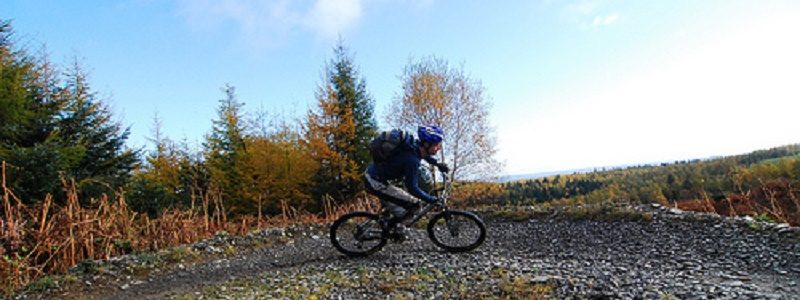By Dr Katrina Brown, James Hutton Institute
(in Volume 26)
The acceptability of mountain biking depends on where it takes place. Mountains are paradoxically where mountain biking is tolerated least. Reporting on recent research by the James Hutton Institute, Dr Katrina Brown explores how the informal zoning of mountain biking comes about, and some of the possible implications.
Putting mountain biking in its place
For some, the mountain biker has become the outdoor ‘anti-citizen’, symbolising all that is feckless and reckless and who does not truly belong in countryside primed for ‘quiet enjoyment’. In Scotland, where this research was undertaken, both walkers and mountain bikers have legal rights of access to most land as long as they act ‘responsibly’. But do mountain bikers really count as legitimate citizens of the outdoors?
Our research suggests that it depends on which outdoors we are talking about. Mountain bikes can increasingly go on more remote and mountainous terrain. Yet their riders are not generally associated with the ability to appreciate and operate in wild and upland environments, and are not welcomed there. A popular management solution is to try to focus mountain bike use in purpose-built trail centres and other more ‘domesticated’ outdoors. Here the feeling is that riders can do little harm to the environment or other users, and indeed can bring a boost to the local economy.
Wild and domesticated outdoors
However, the riders and walkers we interviewed suggested that although the use of more domesticated outdoor spaces could contain some of the effects of mountain biking on the environment and other users, it could also affect the perceived or actual ability of riders to be responsible when they did venture further afield. This was because play and responsibility become separated into their own outdoor realms, and mountain bikers become more associated with the former. As one participant explained, trail centres are: ‘the equivalent of running round the playground at school screaming … it’s like playing … unless you’re really stupid, you’re not going to get yourself into that much trouble …[…]… you don’t really need to be that responsible’.
Alluding to the standardised, risk-assessed (and some say ‘sanitised’), experience, trail centres are seen as places where people can let go of restrictions and express themselves in a way that would be difficult or inadvisable in other outdoor areas. But because these environments are perceived as ‘foolproof’, people believe they foster ‘foolish’ behaviours. Zoning use into more controlled spaces leads to those users being perceived as lacking the competencies to be responsible in the wider outdoors.
Ghettoizing forms of outdoor recreation: The informal zoning of mountain biking
Indeed a deskilling may happen in practice. Certainly many mountain bikers believe this is taking place: ‘you get people coming who have no idea how to ride natural trails. They don’t know anything about assessing conditions or reading a map. But then, why would they know if they’ve only ever ridden in trail centres. They’re not bad people, they’re just ignorant. They don’t have the experience’. There may be a risk then that mountain bikers become ghettoized. They are likely to remain ‘out of place’ in wilder outdoors if they do not have the opportunity to develop the knowledge and skills to be considered responsible there. A zoning trap may be created in which certain people can only belong in certain outdoors. A question that arises is whether and how this might matter.
Cordoning off wild/responsible places and domesticated/playful places has implications beyond mountain biking. Both adults and children are being urged to play more, particularly outdoors. Yet access to the outdoors is only legal when done ‘responsibly’. Access management strategies may be more successful if they can identify and build on circumstances where playful and responsible ways of being outdoors can be cultivated together.
For more summaries of recent research on land use conflicts surrounding mountain biking in Scotland, a booklet is available free at: http://www.hutton.ac.uk/sites/default/files/files/publications/Mountain-biking-in-Scotland.pdf Or contact Dr Katrina Brown, James Hutton Institute, for a hard copy.
These findings come from the peer-reviewed paper: Brown KM (2014) Spaces of play, spaces of responsibility: creating dichotomous geographies of outdoor citizenship, Geoforum, http://www.sciencedirect.com/science/article/pii/S0016718514000955



